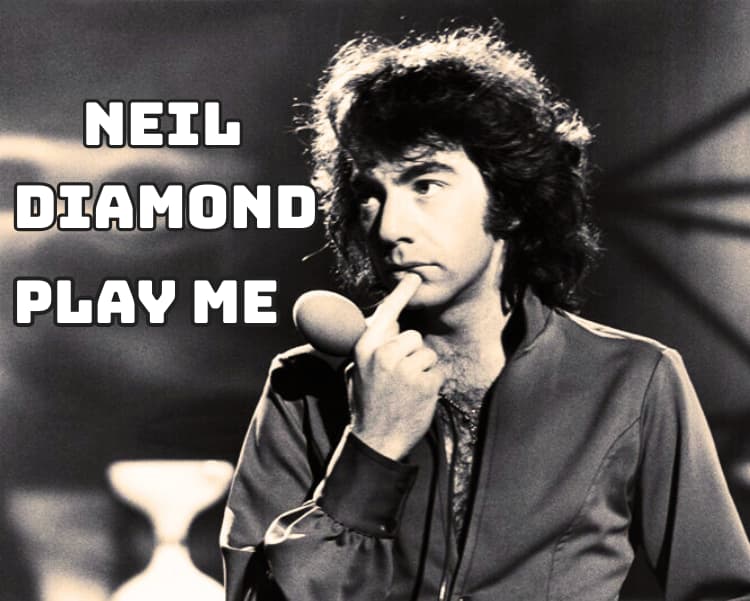
“Play Me”: A Gentle Plea for Connection and Vulnerability
As the needle gently dropped onto the vinyl, a familiar acoustic guitar melody would often fill our living rooms, instantly transporting us back to a simpler time. For many of us who came of age in the early 1970s, Neil Diamond was more than just a singer; he was a troubadour of the soul, his voice a comforting balm, his lyrics a mirror to our deepest emotions. Among his vast repertoire of timeless hits, few resonate with such quiet intimacy and heartfelt vulnerability as his 1972 single, “Play Me.”
Released from his critically acclaimed album, Moods, “Play Me” wasn’t a chart-topping powerhouse in the vein of some of his other anthems. While specific peak chart positions can sometimes blur with the mists of time, it’s generally recalled as a respectable, though not dominant, presence on the airwaves, reaching into the Top 20 on the Billboard Hot 100, a testament to its enduring appeal and the loyal following Diamond had already cultivated. It was a song that didn’t demand attention with bombast, but rather invited listeners in with a gentle whisper, a tender offering in an era often characterized by more boisterous rock and roll.
The story behind “Play Me” is as charmingly understated as the song itself. It’s said that the inspiration struck Diamond while he was on tour, a period often fraught with the loneliness of the road despite the adulation of thousands. The song is a deeply personal expression of a desire for authentic connection, a plea from a performer to be seen and understood not just for his art, but for the man beneath the spotlight. It’s a yearning for a love that isn’t transactional, but rather one that embraces the raw, unvarnished self. This sentiment, often cloaked in the grandiosity of celebrity, felt remarkably relatable to ordinary individuals navigating their own desires for intimacy and acceptance.
The meaning of “Play Me” is multifaceted, yet at its core, it’s a yearning for emotional reciprocity. The “play me” in the title isn’t a demand for a musical performance, but a heartfelt request to be truly seen, heard, and engaged with on an emotional level. It’s a surrender, a willingness to be vulnerable and open to another’s touch, both literally and figuratively. “You are the sun, I am the moon,” Diamond croons, beautifully articulating the complementary nature of two souls intertwined, each dependent on the other for their light and purpose. The lyrics speak of a quiet desperation for a lover to “touch me with your love,” to “feel me in your soul,” suggesting a profound longing for a spiritual and emotional union beyond the superficial. It’s a brave admission of need, a willingness to shed the performer’s persona and embrace the fragile human beneath. For many of us, this song became an unspoken language for our own unspoken desires, a lyrical echo of the human need to be cherished and understood.
As the years have passed, “Play Me” has only grown in its reflective power. It evokes memories of simpler times: slow dances in dimly lit rooms, quiet evenings spent with loved ones, or perhaps even moments of solitary contemplation where the lyrics provided solace and companionship. It’s a testament to Neil Diamond’s enduring genius that he could craft a song so universally relatable, yet so profoundly personal. It’s not just a song about romance; it’s a song about the universal human condition – the fundamental need for connection, for vulnerability, and for the kind of love that truly “plays” our hearts and souls. And even today, when those opening chords drift through the air, we are instantly transported back, feeling that familiar tug at our heartstrings, reminded of the power of a simple, honest plea to be loved and understood.